Art: Show examines how JMW Turner recorded environment changes

- by Admin
- May 27, 2024
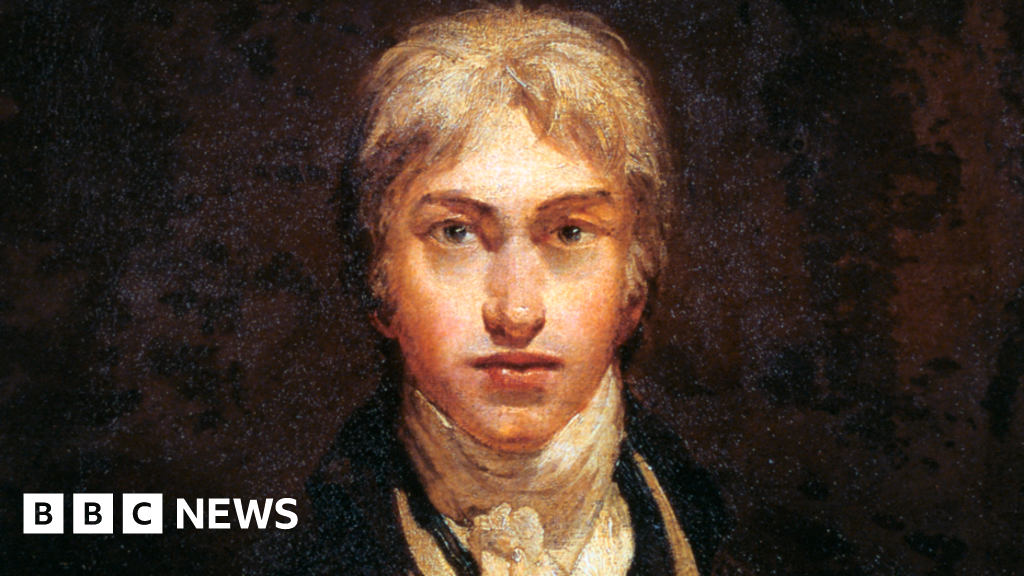
 Getty Images
Getty ImagesA new exhibition is to examine how British artist JMW Turner unknowingly captured the permanent impact people were having on the environment in his paintings.
A World of Care will see the landscape painter’s works presented alongside modern examples of environmental issues to show how he captured changes to his world that would alter the climate forever.
Explaining the display, curator Dr Thomas Ardill said in creating his landscapes, Turner had unwittingly been “recording the early stages of climate and ecological breakdown as he travelled across Britain and Europe”.
The exhibition at Turner’s House, the painter’s former retreat in Twickenham, south-west London, opens on 6 July.
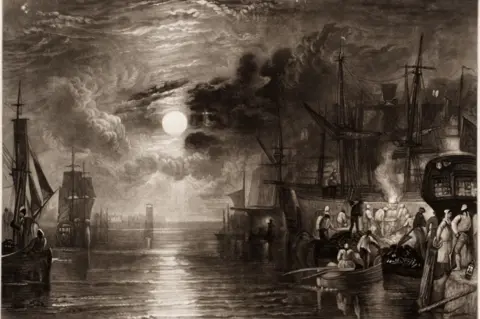 Tate
TateJoseph Mallord William Turner was born in London in 1775 and became what many consider to be one of Britain’s greatest Romantic artists.
Known as “the painter of light”, he created landscapes and seascapes that often reflected changes to the landscape and atmosphere caused by human activity, particularly as a result of the industrial revolution.
“Turner painted the turning point in our planet’s modern history,” argues TV presenter and conservationist Chris Packham.
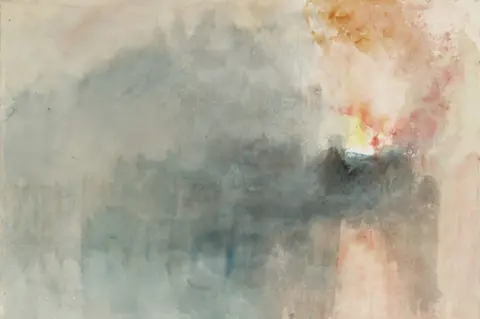 Tate
Tate“His ‘Rain, Steam and Speed’ sees a smoking locomotive at the vanguard of the industrial revolution, howling out of the fug.
“His sunsets are vivid, his skies torrid – he captures the cusp of change.”
The exhibition will see works like Sunset, London from Greenwich, and Shields, on the River Tyne, go on display.
Many of these will be shown alongside modern examples of climate change, such as a photo of the Mer De Glace in France which will be displayed beside Turner’s own painting of the glacier from 1812 to show how it has retreated.
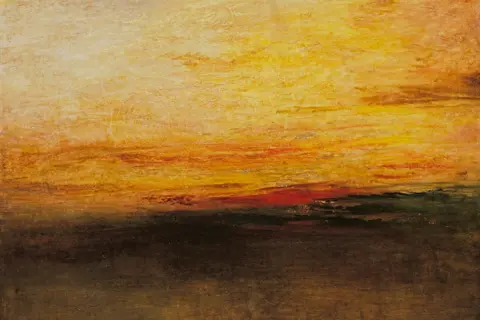 Tate
TateExplaining the thinking behind the exhibition, Dr Ardhill said: “Until recently, we may have seen these pieces as spectacular and beautiful representations of unspoiled landscapes, but there are many signs that human activity was already irrevocably damaging the environment.
“By looking at his work afresh through the context of climate change, we can reconnect with Turner on a very human level, understanding that what was important to him is important to us today.”
The World of Care exhibition runs from from 6 July to 27 October.
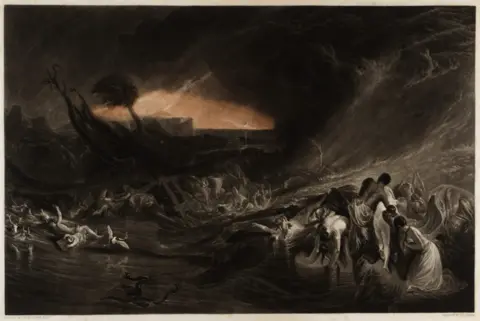 Tate
TateThe Latest News
-
December 22, 2024Elon Musk’s British cousin reveals how brutally world’s richest man snubbed him: ‘I’m shocked that…’
-
December 22, 2024UK Weather: Wind messes up UK travel plans
-
December 22, 2024Life in one of Britain’s most miserable towns: Locals in Barking blast council ‘shambles’ and say shopping centre is so empty it is like living in a ‘ghost town’
-
December 22, 2024Christmas travel chaos continues with 100 Heathrow flights cancelled amid severe 80mph wind weather warnings
-
December 22, 2024Winds blow UK Christmas travel off course, with ferries and flights cancelled






